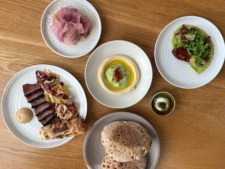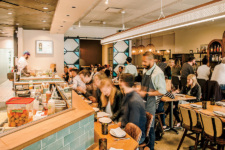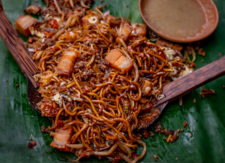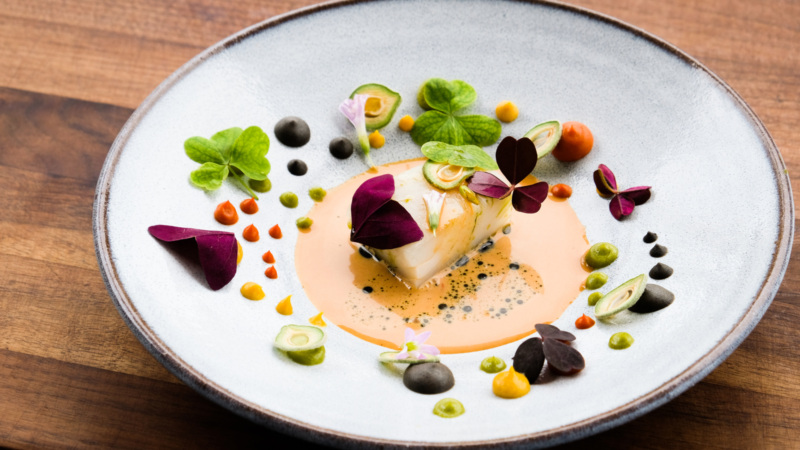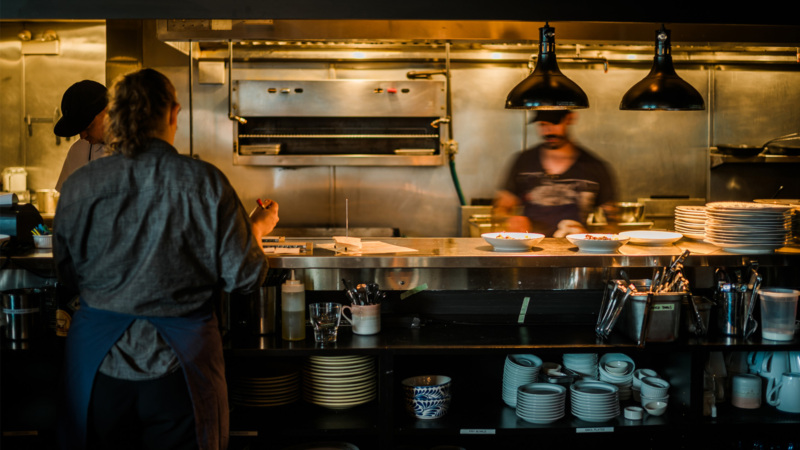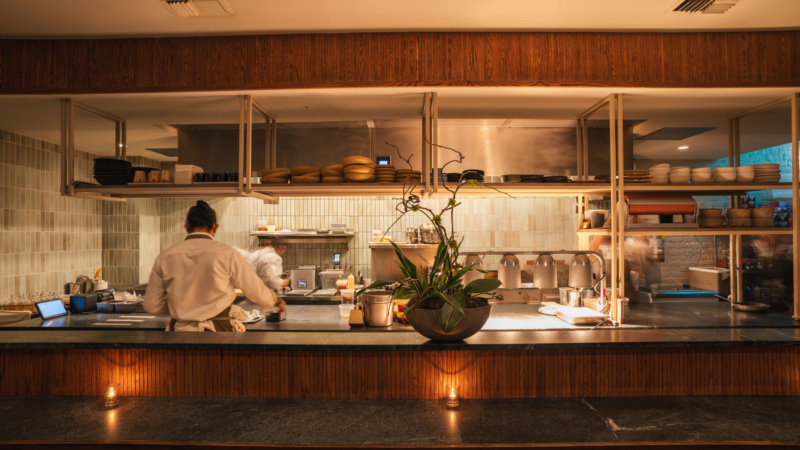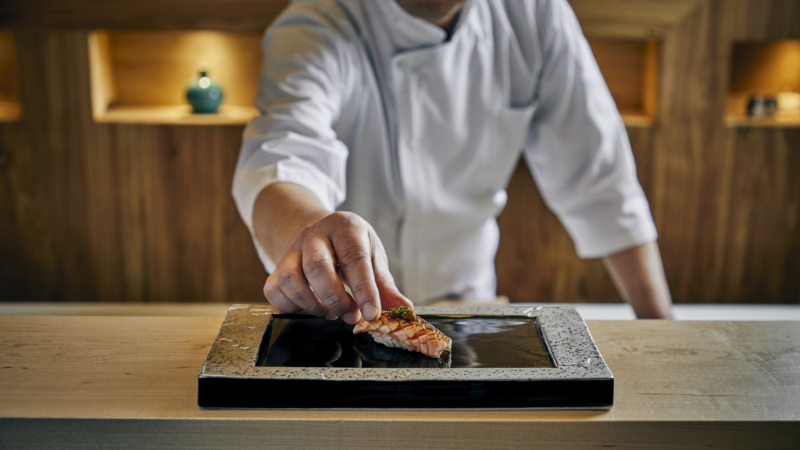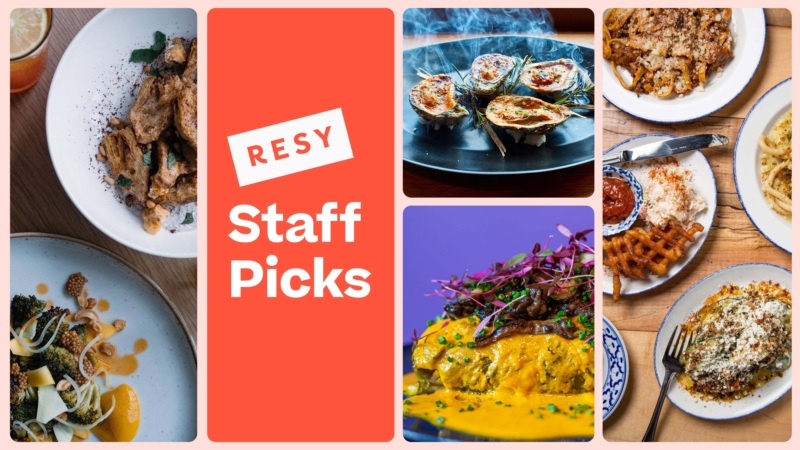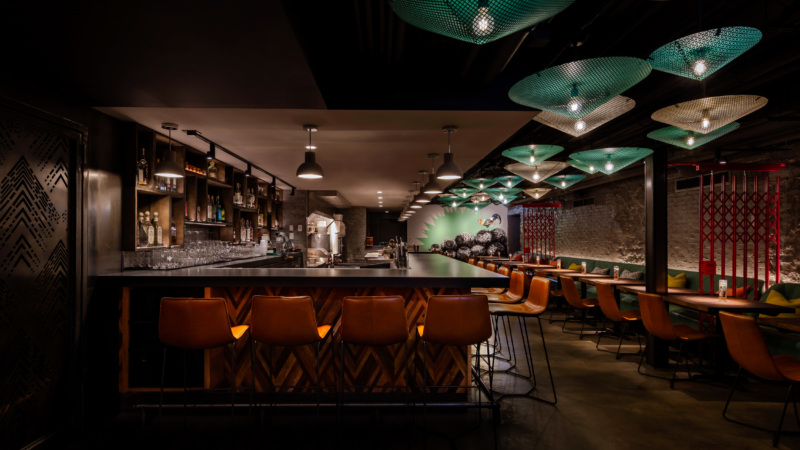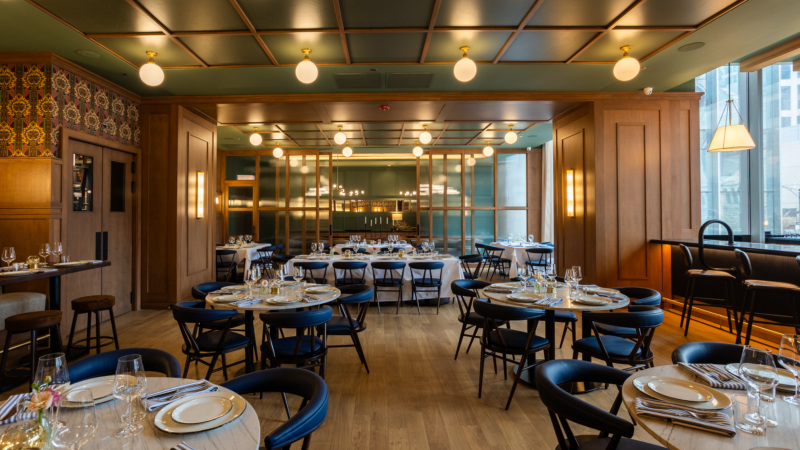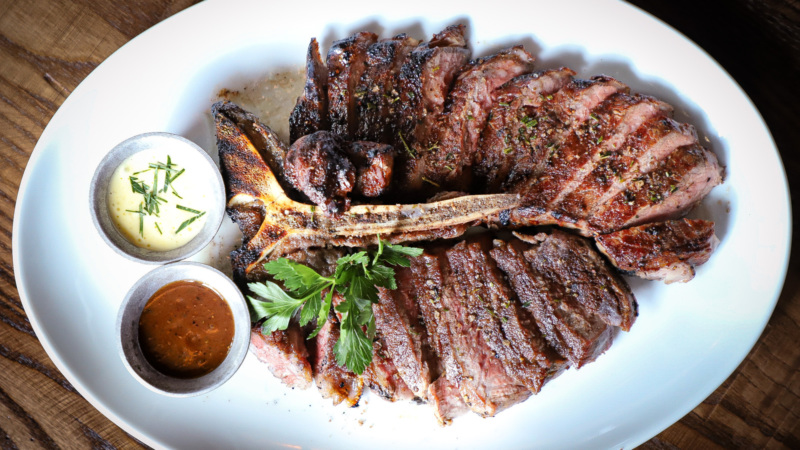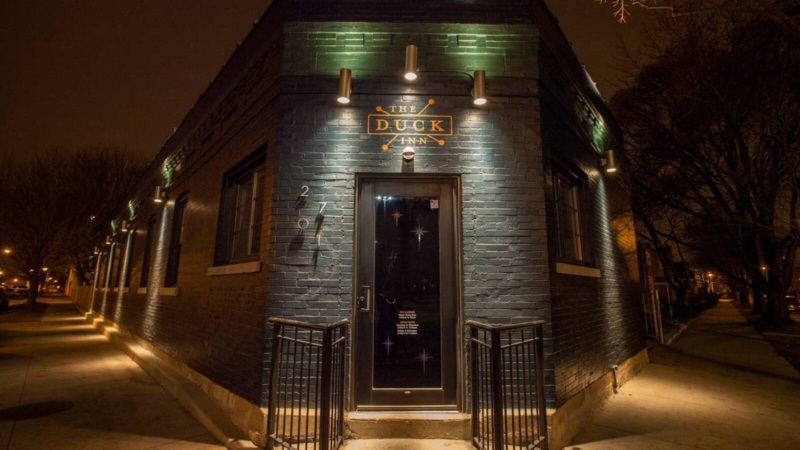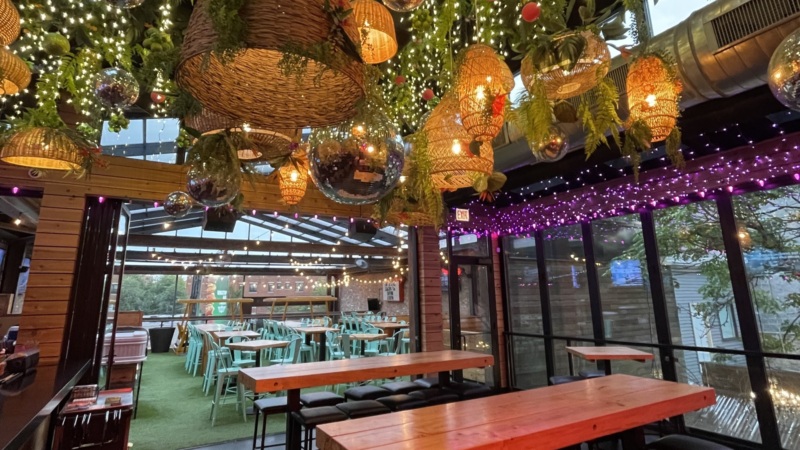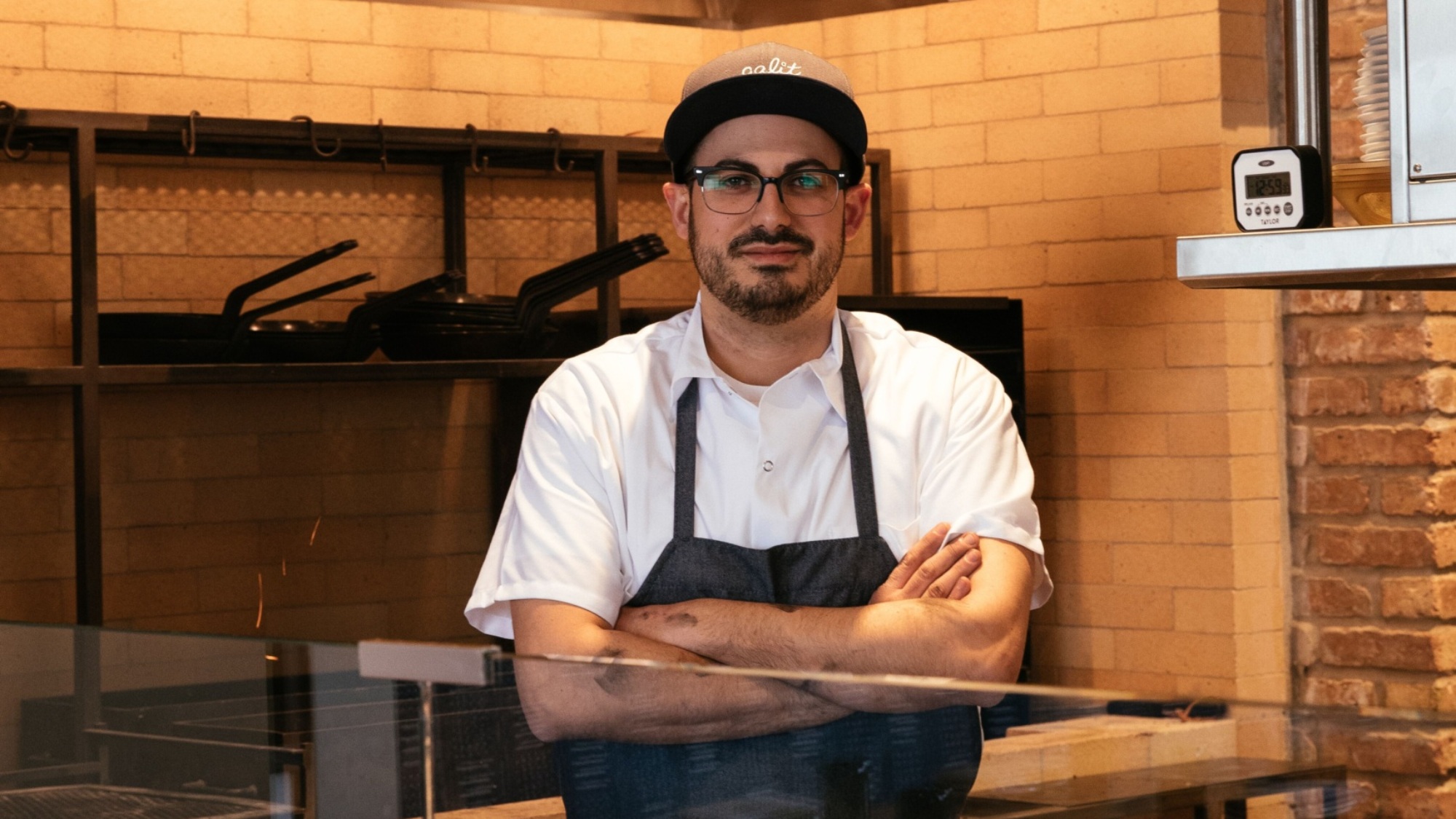
Galit’s Zachary Engel on How Food Brings Us Together
Welcome to Chef to Chef, wherein Resy empowers chefs to interview other chefs.
At Chicago’s Galit, chef Zachary Engel and his business partner, Andrés Clavero, sought to create a restaurant that feels like a dinner party. “I’m more or less just trying to transport people somewhere and, hopefully, emulate a dinner party you might have at someone’s house in the Middle East,” Engel says.
Since the restaurant opened in Chicago’s Lincoln Park neighborhood in 2019, Galit has won acclaim for its uniquely Midwestern takes on Middle Eastern cuisine, drawing on Engel’s experience as a Jewish American, and on Clavero’s Palestinian background.
In June, Engel is inviting chef Chintan Pandya and restaurateur Roni Mazumdar from New York’s Unapologetic Foods Group (Dhamaka, Semma, Naks, Adda Indian Canteen, and Masalawala & Sons) to join him in Chicago for a two-day event celebrating the intersection of Indian and Middle Eastern cuisines.
In anticipation of their collaboration, Resy asked them to interview each other about what it means to be unapologetic, and to cook food from your own heritage. Here’s what they had to say.
[Editor’s Note: The following has been edited for clarity and length.]
Roni Mazumdar: What was your vision behind opening Galit and transforming it into one of the best restaurants in the country?
Zachary Engel: Our original vision for Galit was to create a comfortable neighborhood restaurant that served Middle Eastern food and wines. I hoped that we would get to where we are today in 10 or 20 years. But the various transitions we had to make during COVID shutdowns helped us to evolve.
During the pandemic, the cooks and I put out falafels, French fries, and burgers in takeout boxes, which was never our intention. When we were about to reopen the dining room to guests after 18 months, we realized that we needed to evolve our original approach to meet costs. Our four-course menu gave us the freedom to cook at a really high level and focus more on the guest experience than ever before.
Pandya: What do you think being unapologetic means, and what’s the most unapologetic thing you have ever done in your life?
Engel: To me, and in terms of my own life experiences, unapologetic means “on my own terms” and it’s a little bit of how we’ve built Galit over the past five years. For example, when I arrived in Chicago and ever since, I’ve worked on gaining access to great wines from the Middle East for our wine program. We don’t have wines from Napa, France, or Italy on our list, among other rules we don’t break. Everyone we talked to thought we were nuts and tried to get us to change it up to fill in spots with wines that we liked but didn’t fit into my vision for an excellent selection of Middle Eastern wines. We fought hard to get the wines we wanted into Chicago and in our cellar. Today, it’s evident that we arrived at where we wanted. Winemakers and distributors are sending wines to us without us having to ask, and folks come to dine at Galit not just for our food but to try some of our bottle selection. Being unapologetic and resilient achieved the results for which we strove.
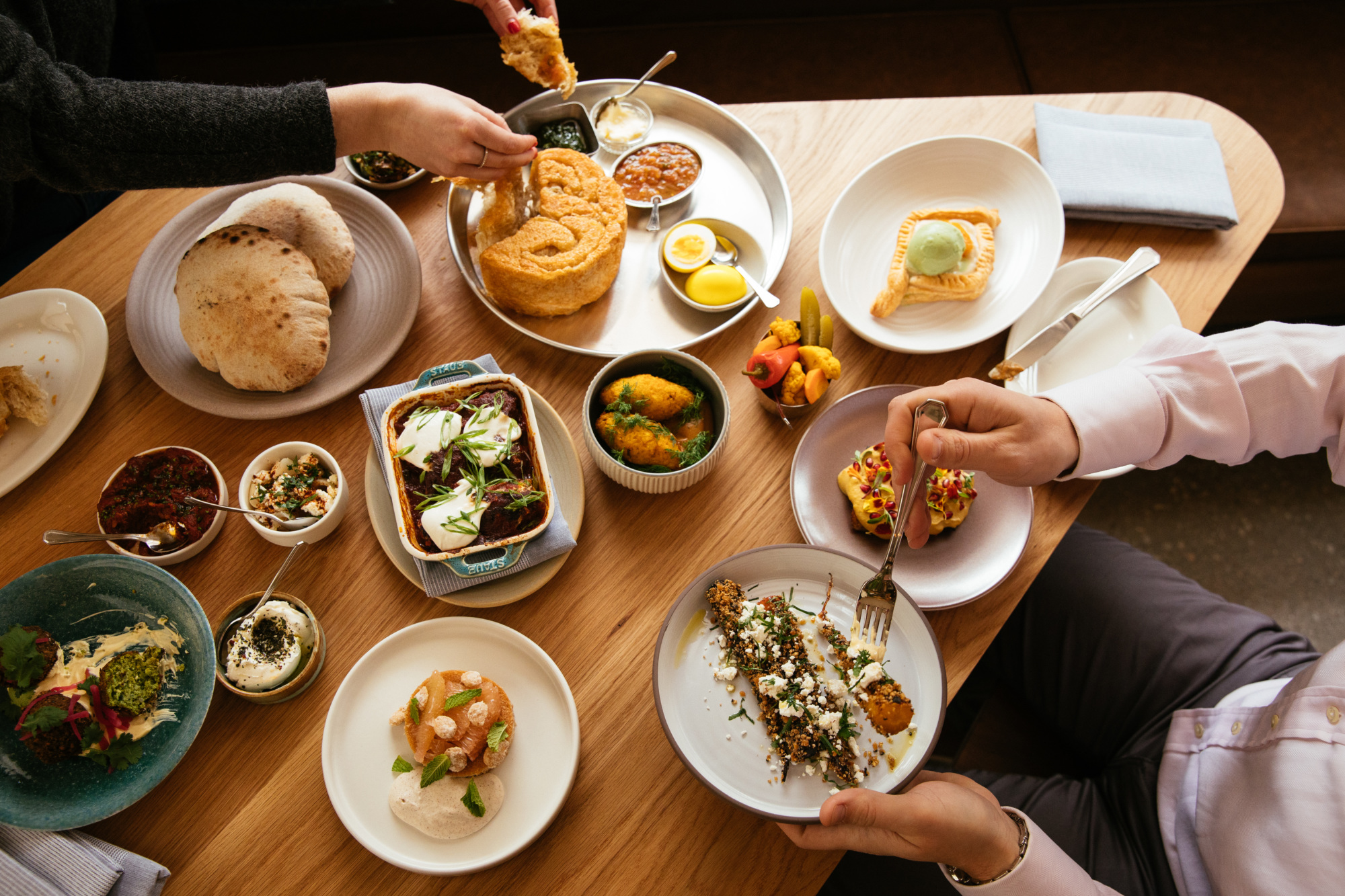
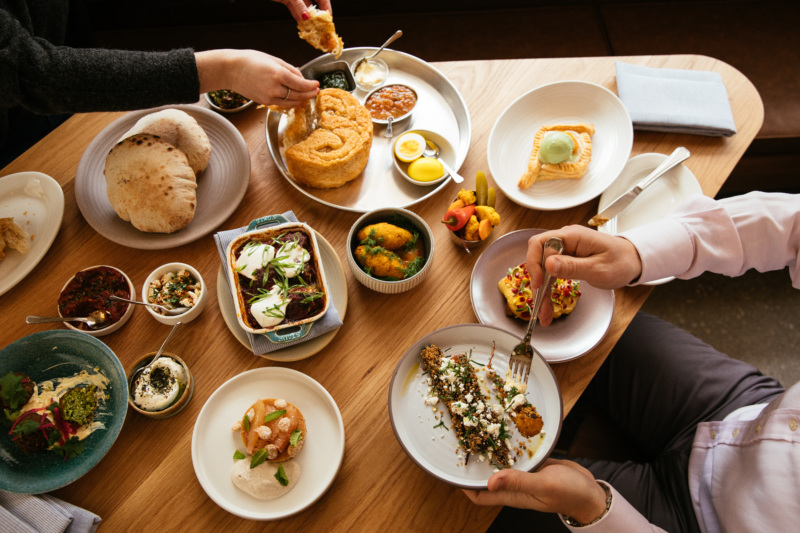
Engel: Unapologetic is inspired by the idea that one can cook food and operate one’s restaurant on one’s own terms. Do those terms ever get in the way of your progress as a group?
Mazumdar: No! We have historically always gotten in our own way by never serving the real food that is in our soul. We see this as an opportunity to energize our entire community and share with the world what food means to us. An obstacle is a matter of perspective, and our view is that we should always do what is true to us.
Engel: How fluid are those terms? Can they be changed on a whim or are the terms steadfast over time within each restaurant or the entire organization?
Mazumdar: Each restaurant we build is with a specific perspective and we do our best to stick to that narrative. Each region of India is a country on its own, with its own cuisine. So we would rather explore deeper into each point of view that has a wealth of information that was never shared with anyone.
Engel: Was there ever a moment that you knew that this would become the mantra for your organization? Or a moment when you realized that an unapologetic mentality had become a core value?
Mazumdar: I remember a specific moment when Adda Indian Canteen first opened, I met this African American gentleman who said that he jumped out of his couch to come over just because he felt something special upon reading the words “unapologetic Indian.” Until then we only used to use the term verbally to describe our ethos, but it really resonated with him so much. Over the coming months, we started to have really incredible conversations with guests around the very idea of Unapologetic. So we always say that we didn’t name our group, but New Yorkers did.
Engel: What are one or two things that the dining public has had to get used to that you refused to change or adapt at any of your restaurants?
Chintan Pandya: The spice levels in certain dishes were huge issues, but over time people truly understood the reason behind it. We have always served our food as a version that wasn’t meant to offend anyone, but we just stopped thinking about that.
Restaurants have an ability to unify neighborhoods and small communities, as a gathering place for people, ideas, and culture. It doesn’t matter what you’re serving, so long as it’s done with dignity, respect, and kindness.— Zachary Engel
Engel: What is something that you think your younger self should have to apologize to you for?
Pandya: For the longest period of time, I was cooking to please other people and show what I could do. It was never about what I love to eat. My entire mindset changed once I cooked exactly what I love to eat.
Mazumdar: Why did you choose to become a chef who cooked food from his own heritage?
Engel: When I was just a kid on my first trip to Israel with my family, I really connected with the food. I also enjoyed the act of sharing at dinner tables with friends and family. Those memories are vivid, and the tastes and flavors have stuck in my mind for years. My business partner, Andrés, grew up eating similar foods at holidays and family gatherings with everyone from his mother’s side, who are Palestinian. He and I found a strong connection on what we could do at Galit. Food could bring us together, and the atmosphere that we create for our guests could evoke those same feelings from our personal memories.
Engel: The last time you visited India, was there a “lightbulb moment” that inspired you to implement back at one of the New York spots?
Mazumdar: Lots of them. We were there for close to a month with members of our team. There are many dishes that we tried and loved, so we put them on our menu.
Pandya: Bombil fry (Bombay duck) was one of the dishes which everyone was blown away with. While dining at this restaurant savoring this dish, the restaurant actually caught on fire, but we, being stupid individuals, finished the dish and then escaped.
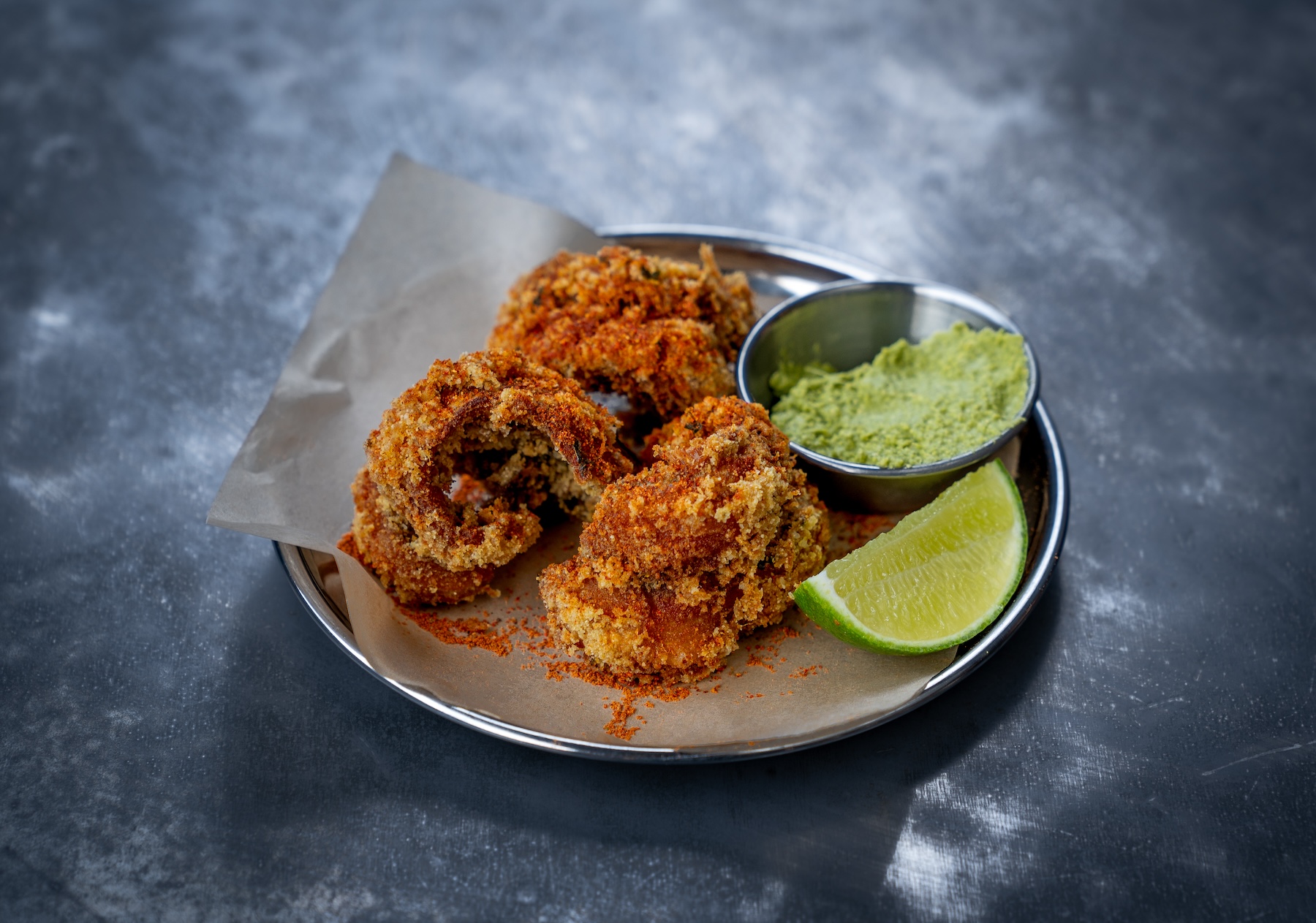
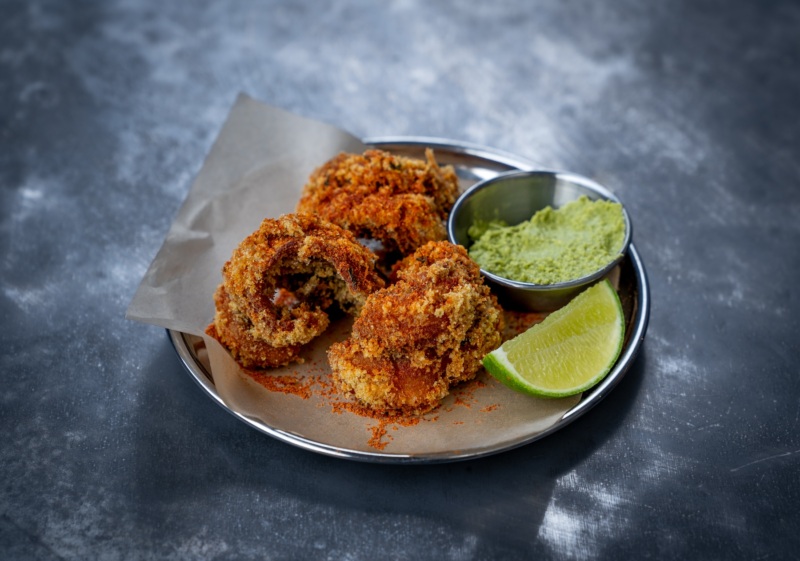
Engel: Which chefs and restaurateurs do you look up to in our industry?
Pandya: Our biggest inspirations are the chefs cooking on the street side of India.
Pandya: What inspires you and how do you apply that in your cooking?
Engel: The seasons of the Midwest really drive what we do here at Galit. I feel that I really know the ingredients of Middle Eastern cuisines fairly well, but it’s still thrilling for me to match them with different produce from the Midwest each year. I’m also a bit of a romantic. I think a lot about the people and communities that have taken me in and how I might tell their stories in a unique way.
Pandya: Why do you think regional and authentic cuisines have not been embraced in the past like they are now?
Engel: I really think that the dining public is a different generation than any before. They have all the buying power and as we’ve become more diverse and integrated, our society has become more open to understanding the experiences of others in America. Our generation is driving the demand towards these restaurants and cuisines. I also think in the last one or two decades, international travel has really scaled up and become more accessible to a lot more Americans, which has broadened the palates of a lot of folks and given them a drive to find the tastily unfamiliar.
Mazumdar: Do you believe there is still a hierarchy in food that exists in our industry? If so, how do you want to break through those boundaries?
Engel: I think there still might be a hierarchy of food or cuisine that exists in our industry but it’s quickly fading away. A lot of Western and European cuisines use more expensive ingredients regularly, such as caviar or truffles, and that has placed a higher intrinsic value to these cuisines. As chefs, we’re no longer afraid to use those ingredients in our regional cuisines, which helps to eliminate that differentiation in “value.” Taking creative freedoms to absorb these “high-value” aspects of European cuisine will continue to break down the xenophobic misconception that other cuisines should be cheap or larger portions to have an equal value.
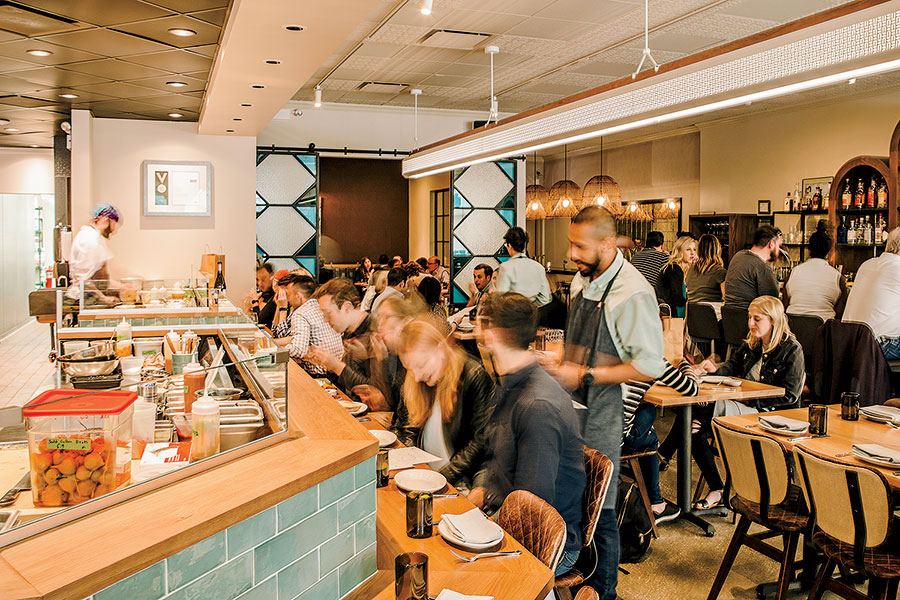
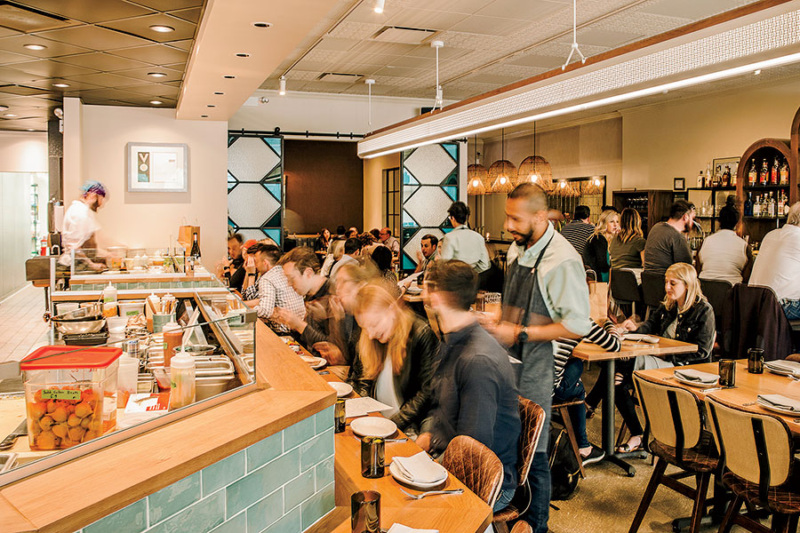
Mazumdar: What are the ways you believe the industry can be improved to better understand lesser-known cuisines?
Engel: Where we’re at in 2024 has wildly improved from when I started cooking in restaurants 15 years ago. But I think it’s really as simple as we chefs teaching the next generation of cooks how to cook these dishes, to gain a deeper understanding of the ingredients, and at some point, support them to create their own versions of lesser-known cuisines. As chefs, we have voices in our food that echo those of our mentors — professional or personal — and it’s our duty to aid our employees to continue it on.
Mazumdar: How do you think food can be better represented in America?
Engel: We’re seeing a lot of diversity in food in major cities on the east or west coasts. But we need these kind of restaurants to fill out the smaller cities and the suburbs in other parts of the country like the South and the Midwest. Taking a chance in these areas will broaden the minds of more folks who are open to what’s new and exciting, and in turn, improve those communities greatly.
Restaurants have an ability to unify neighborhoods and small communities, as a gathering place for people, ideas, and culture. It doesn’t matter what you’re serving, so long as it’s done with dignity, respect, and kindness. A restaurant like that will revive its community.
Zachary Engel’s Favorite Places to Eat in Chicago
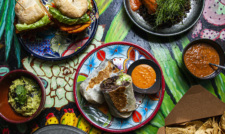
El Che Steakhouse: “It’s always a great meal, big or small, and I love the all-South American wine program they have there.”
Mi Tocaya Antojería: “Diana Dávila’s cooking at Mi Tocaya is all hits. She’s an incredible talent in Chicago.”
Smyth: “I also go to Smyth at least once a year because John Shields cooks in a profoundly unique way on his own terms and I respect him and his whole team a lot.”
Engel: Not including new restaurant openings (please slow down, you make Andrés and I look bad), what are your next big business adaptations for the future? What are the big-picture goals of the businesses?
Mazumdar: We are in the process of seeing how counter services can be grown to share the vision we have, and also reach people in their own homes with a line of products. The end game is to reach people in a way that expands the understanding of our cuisine and culture.
Engel: What was your favorite bite when you ate at Galit in 2022 after the James Beard Award win?
Mazumdar: The lamb was, hands down, one of the best bites.
Engel: When you come to cook with us in Chicago, where should we take you to eat beside Galit?
Pandya: Anywhere you and your team are eating on your days off.
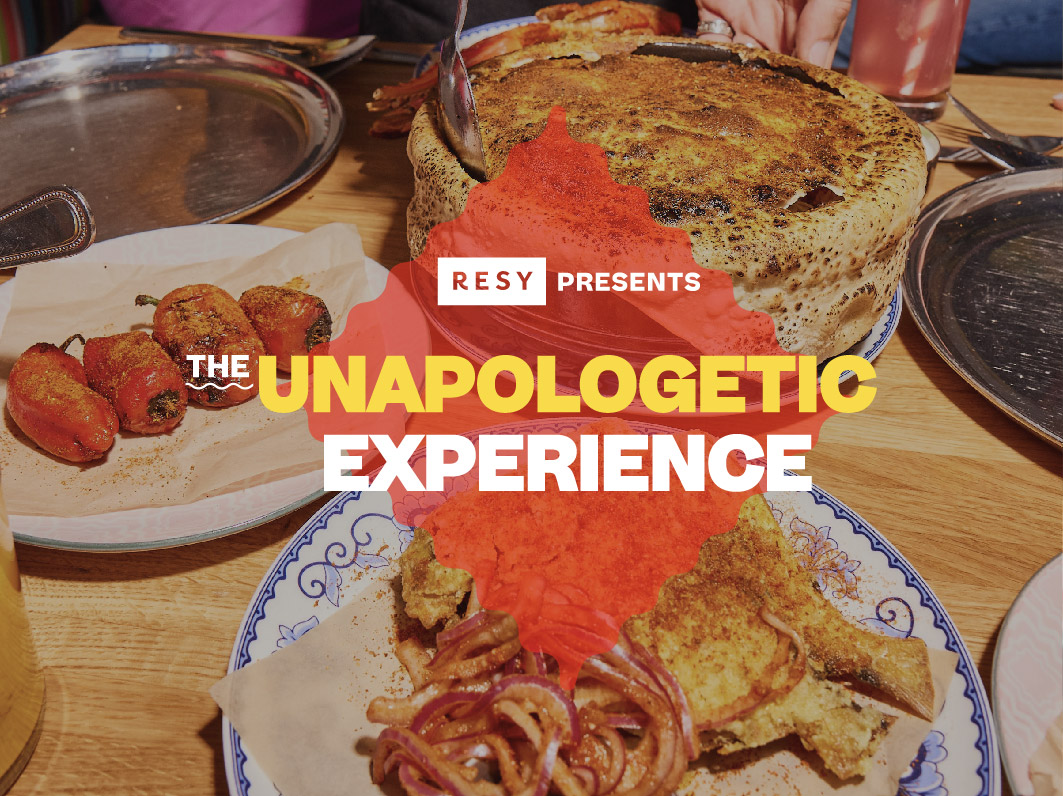
Get Your Tickets
This June and July, Unapologetic Foods is touring the country to pull off some of the year’s most exciting collabs with chefs that include Anajak Thai’s Justin Pichetrungsi, Galit’s Zach Engel, and Tiger Fork’s Simon Lam.
Must be 21 years of age or older to consume alcoholic beverages. Please drink responsibly. American Express reserves the right to remove any person for inappropriate behavior including, but not limited to, conduct that is disruptive, abusive, or violent.
Galit will be hosting Unapologetic Foods in Chicago on Sunday, June 23, for a street-eats-themed festival, and on Monday, June 24, for an intimate dinner combining the foods and flavors of the Middle East and India. Find out more here.
Deanna Ting is Resy’s New York & Philadelphia Editor. Follow her on Instagram and X. Follow Resy, too.








